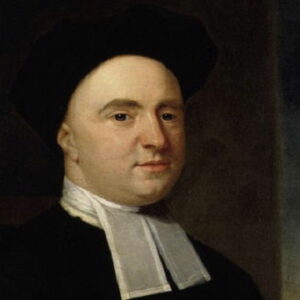One of the great philosophers of the modern age was George Berkeley, an Anglo-Irish Anglican bishop. His philosophy is noted for being empiricist and idealistic. Idealism is the concept that everything that exists is dependent on the mind to exist, and that reality is made up of whatever the senses experience. Along with John Locke and David Hume, he is considered one of the three most significant British empiricists. Berkeley is a key figure in the ‘Subjective Idealism’ thesis, which maintains that the only things that exist are people’s minds and the contents that they see. The thesis is linked to ‘Immaterialism,’ the belief that material objects do not exist. He believed that all physical objects ‘exist’ because they are thought to exist in the minds of people. He believed that perception might refer to an individual’s actual perception of an entity or the potential perception if the individual perceived something in a specific way. He was a metaphysicist who opposed materialism and studied the relationship between mind and matter, the nature of reality, fact and value, and so on. He wrote a number of philosophical works, the most famous of which is ‘A Treatise Concerning the Principles of Human Knowledge.’
Childhood and Adolescence
He was born in Ireland as the eldest son of an Englishman named William Berkeley. Despite his father’s English ancestry, he considered himself Irish.
In 1696, he enrolled at Kilkenny College. He went on to Trinity College, Dublin, where he got his B.A. in 1704. His affiliation with the Trinity continued until 1724, albeit he did not live there for the entire time.
In 1707, he received his master’s degree and was appointed a junior fellow. In 1710, he was ordained as an Anglican priest. In 1717, he became a senior fellow after completing his degree.
Career of George Berkeley
While at Trinity College, he began publishing his work. In 1709, he published his first philosophical essay, ‘An Essay Toward a New Theory of Vision.’ In the book, he explored problems such as visual distance, size, issues of sight and touch, and others, which sparked debate at the time.
He wrote ‘A Treatise Concerning the Principles of Human Knowledge’ in 1710. In this book, he attempted to disprove John Locke’s arguments regarding the nature of human perception.
In 1712, he published ‘Passive Obedience,’ which dealt with moral and political philosophical difficulties.
In 1713, the famous ‘Three Dialogues between Hylas and Philonous’ were published. In this book, he discussed the principles of perceptual relativity and observer perceptions.
In 1721, he authored ‘De Motu,’ an essay on motion in which he refuted the physicist Sir Isaac Newton’s conceptions of absolute space, time, and motion.
In 1721, he received his PhD in divinity after receiving Holy Orders in the Church of Ireland, and he lectured at Trinity College Dublin on Divinity and Hebrew. Later same year, he was appointed Dean of Dromore, and then Dean of Derry in 1724.
In 1734, he was named Bishop of Cloyne in Ireland, a position he maintained until his retirement in 1752.
In 1744, he published a treatise on the benefits of pine tar and the different applications for which it can be used. ‘Siris: a Chain of Philosophical Reflexions and Inquiries Concerning the Virtues of Tar Water’ was published in 1752, and it was followed by ‘Further Thoughts on Tar-water’ in 1753.
Major Projects of George Berkeley
‘Three Dialogues between Hylas and Philonous’ (1713) was his first significant book, and it examined the principles of perceptual relativity, conceivability, and phenomenalism. In the novel, he expresses his metaphysical beliefs through a discussion between two characters, Hylas and Philonous.
Many of Sir Isaac Newton’s conceptions of space, time, and motion are refuted in his article titled ‘De Motu’ (1721). Motion, he claimed, should not be thought of as a separate entity from time and space.
‘Alciphron’ is a philosophical dialogue written in the form of a discussion between four characters that represent the free thinkers Alciphron, Lysicles, Euphranor, and Crito. It was first published in 1732.
One of his final important writings was ‘Siris: a Chain of Philosophical Reflexions and Inquiries Concerning the Virtues of Tar Water’ (1744). He spoke on the different medical uses of tar water, as well as a number of seemingly unrelated subjects like science, philosophy, and theology.
Personal Experiences of George Berkeley
In 1728, he married Anne Forster, the daughter of the Irish Common Pleas Chief Justice. Only three of the couple’s seven children made it through childhood.
He was involved in humanitarian work in London, assisting orphaned children. He was one of the first governors of the Foundling Hospital, which was founded in 1739 by Royal Charter.
He was a happy, kind, and generous man who was adored by those who knew him. In 1752, he retired and moved in with his son.
At the age of 67, he passed away.
Trivia
Berkeley is a city in California that bears his name.
Many modern philosophers, including Immanuel Kant and David Hume, are said to have been influenced by him.
Estimated Net Worth
The Estimated net worth of George Berkeley is unknown.


